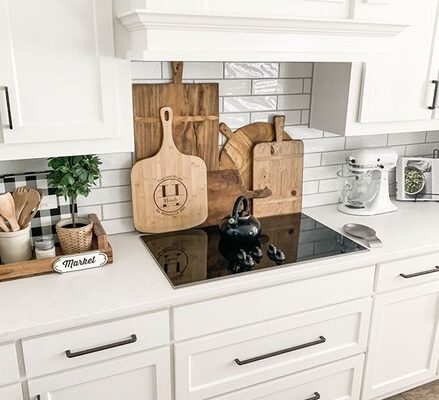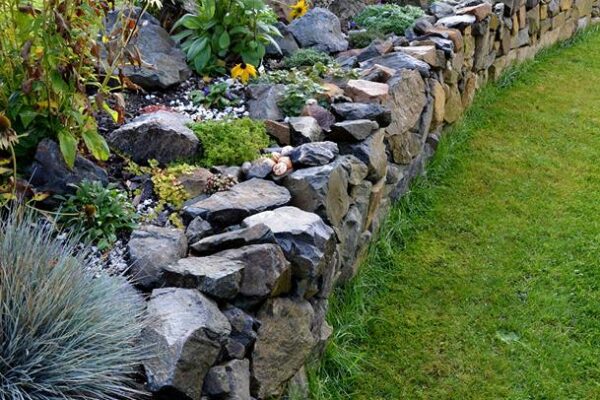Natural Haven: Wooden House with a Rooftop Garden
A wooden house with a rooftop garden offers a unique and sustainable living experience, combining the warmth and charm of wood with tranquility and beauty of a garden oasis. If you’re seeking a distinctive and sustainable living experience, a wooden house with a rooftop garden might be the ideal choice for you. The integration of a rooftop garden enhances the eco-friendly design and aesthetic appeal of a wooden house, creating a harmonious and inviting living space.
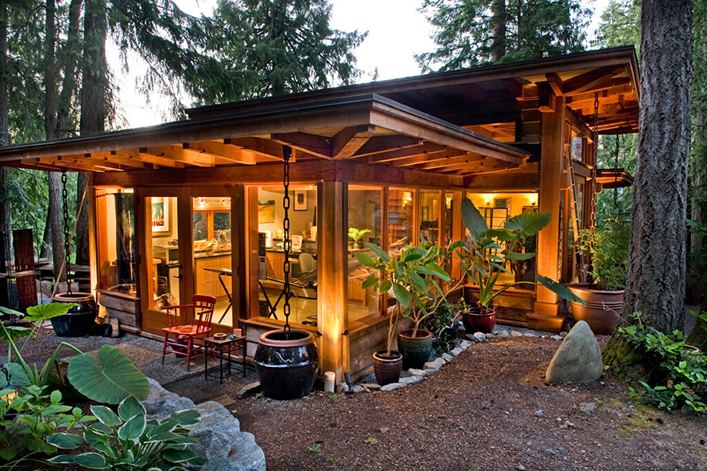
This article delves into the advantages and allure of such a dwelling, providing detailed information on why it could be your perfect next home.
Architecture and Design
Constructed using Douglas fir beams sourced from Coulson property trees; this wooden house exemplifies sustainable architecture. The studio features a 900 square foot sod roof with 42″ overhangs, designed to direct runoff to the entrance’s potted bamboo through recycled log boom chains.
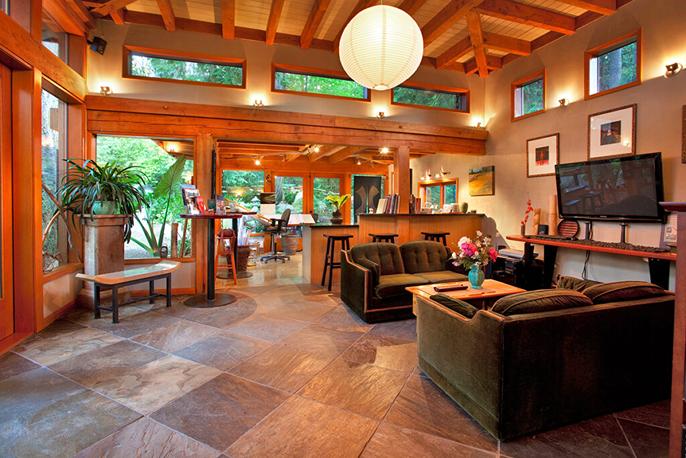
Additionally, a salvaged curving iron staircase grants access to the green roof, enhancing the house’s unique aesthetic. The high-ceiling living room, adorned with Douglas fir beams and floor-to-ceiling windows, seamlessly connects with nature, creating a warm and comfortable ambiance.
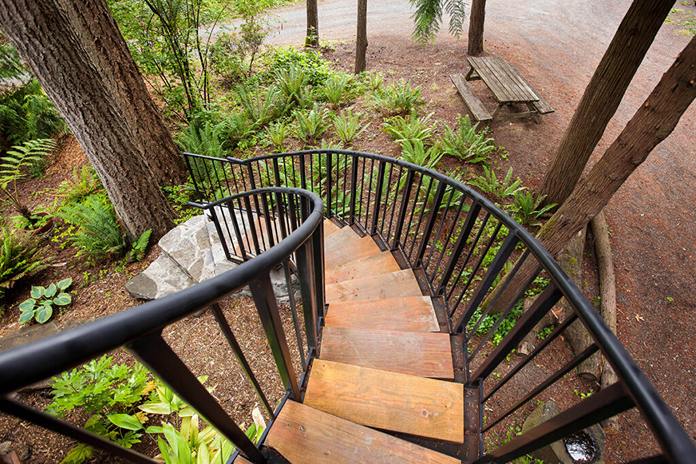
Fusion of Japanese-inspired Elements
The kitchen exudes a West Coast Japanese feel, boasting elegant vertical grain bamboo cabinets, black granite countertops, and terrazzo flooring. Custom shoji screens lead to the cozy bedroom wing, where the Douglas fir beams extend into the space, harmonizing with the wood flooring and American Clay walls. By blending sustainable design with Japanese-inspired elements, this post-and-beam studio creates a distinctive and harmonious living space.
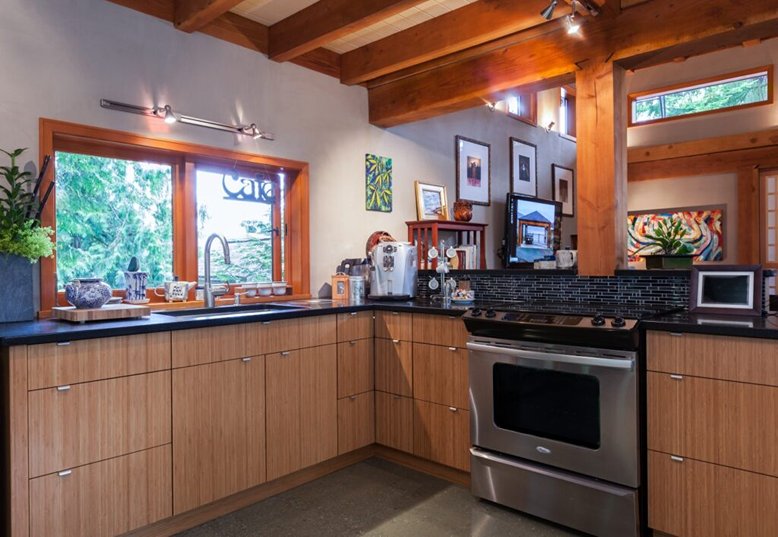
Benefits of a Wooden House
A wooden house offers numerous advantages, including environmental sustainability, affordability, and durability. These homes have a lower carbon footprint compared to traditional concrete or steel structures since wood are a renewable resource that absorbs and stores carbon dioxide.
Moreover, wooden houses can be constructed quickly and efficiently, leading to cost savings for homeowners. Their durability enables them to withstand harsh weather conditions and natural disasters.
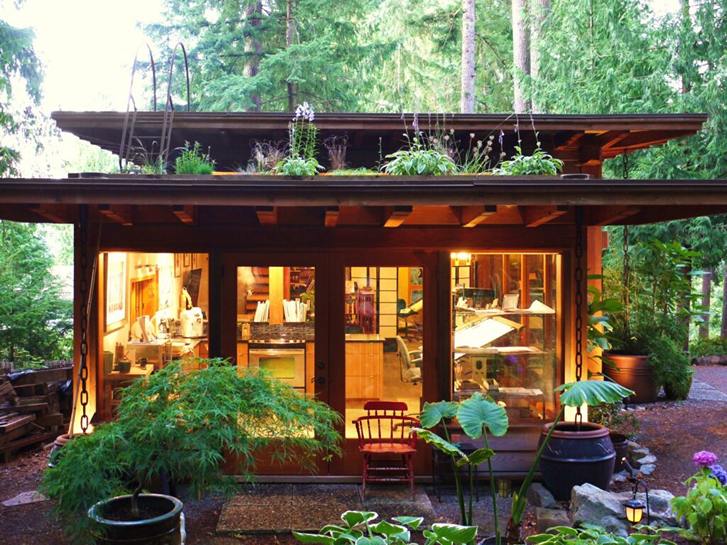
Benefits of a Rooftop Garden
Rooftop gardens are gaining popularity in urban areas due to the array of benefits they offer. They provide insulation, effectively manage storm water, and improve air quality. These gardens also create a natural habitat for birds and insects, and help mitigate the urban heat island effect, reducing temperatures in cities.
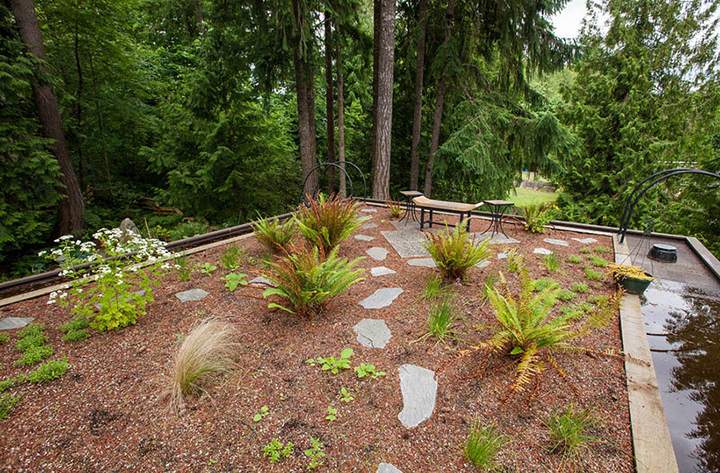
Wooden House with a Rooftop Garden
By combining a wooden house with a rooftop garden, homeowners enjoy the best of both worlds. The wooden house provides a warm and inviting living space, while the rooftop garden offers a tranquil and relaxing outdoor oasis. Additionally, the rooftop garden helps insulate the home, reducing energy costs, while the wooden house provides a sturdy and durable foundation.
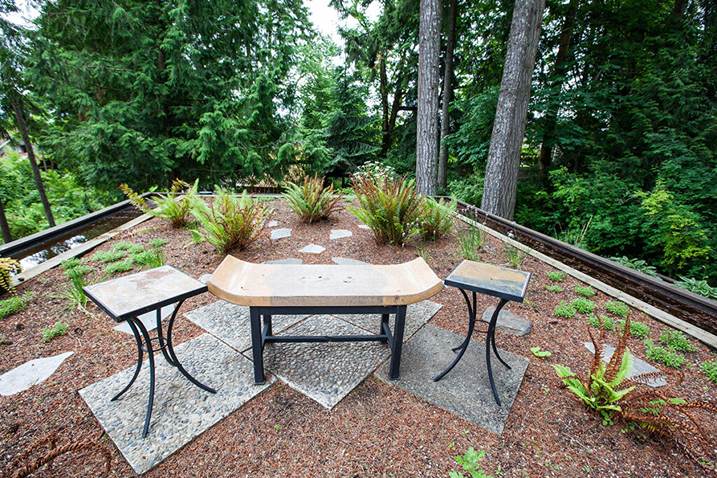
Contemporary Japanese Style Wooden House
Contemporary Japanese-style wooden houses are highly sought after for their simple yet elegant design. These homes typically feature clean lines, natural materials, and minimalistic décor. A wooden house with a rooftop garden in this style offers a tranquil living space that seamlessly blends with the surrounding natural environment.
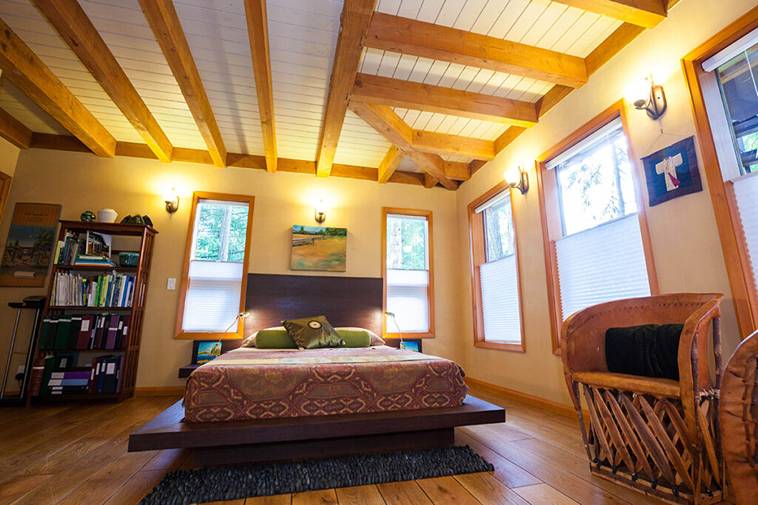
Building a Wooden House with a Rooftop Garden
Constructing a wooden house with a rooftop garden necessitates careful planning and consideration. It is crucial to collaborate with an architect and contractor experienced in designing and building these types of homes. Compliance with building codes, zoning regulations, and ensuring the home’s structural integrity are essential factors to be addressed.
Designing the Rooftop Garden
Designing a rooftop garden is an exciting and creative process. Homeowners can select from a variety of plants, flowers, and shrubs, while also incorporating features such as a vegetable garden, water feature, or seating area. Factors such as sun exposure, wind patterns, and drainage should be taken into account during the design phase.
Cost Considerations
Building a wooden house with a rooftop garden may entail higher costs compared to traditional homes. However, it can provide long-term cost savings. The energy-efficient design and sustainable features of these homes can reduce utility bills and maintenance costs. Additionally, the unique design and eco-friendliness of such a house can increase its resale value.
Maintenance Requirements
Regular care and attention are necessary to maintain both the wooden house and the rooftop garden. Structural integrity, including the roof, walls, and foundation of the wooden house, must be regularly inspected and maintained. Furthermore, tending to the plants, including watering, fertilizing, and pruning, is essential to ensure the rooftop garden thrives.
Embracing Sustainable Living
A wooden house with a rooftop garden epitomizes sustainable living. It not only offers an eco-friendly living space but also promotes self-sufficiency and reduces one’s carbon footprint. Growing your own food, harvesting rainwater, and utilizing renewable energy sources can decrease reliance on traditional utilities, minimizing environmental impact.
Enhancing Home Value
Such a unique and eco-friendly living space can significantly enhance a home’s value. The demand for sustainable and stylish homes is high, making a wooden house with a rooftop garden an attractive option. Additionally, the addition of a rooftop garden enhances the aesthetic appeal of the home, providing a tranquil outdoor space for relaxation and entertainment.
The Future of Wooden Houses and Rooftop Gardens
As awareness about the benefits of sustainable living grows, the popularity of wooden houses and rooftop gardens is expected to increase. These eco-friendly homes offer a distinctive and stylish living experience that promotes self-sufficiency and reduces carbon footprints. Advances in sustainable building materials and technologies further contribute to a promising future for wooden houses and rooftop gardens.

